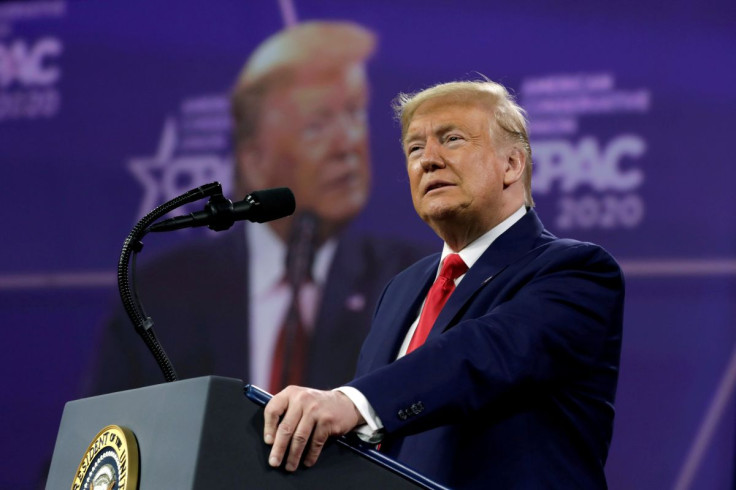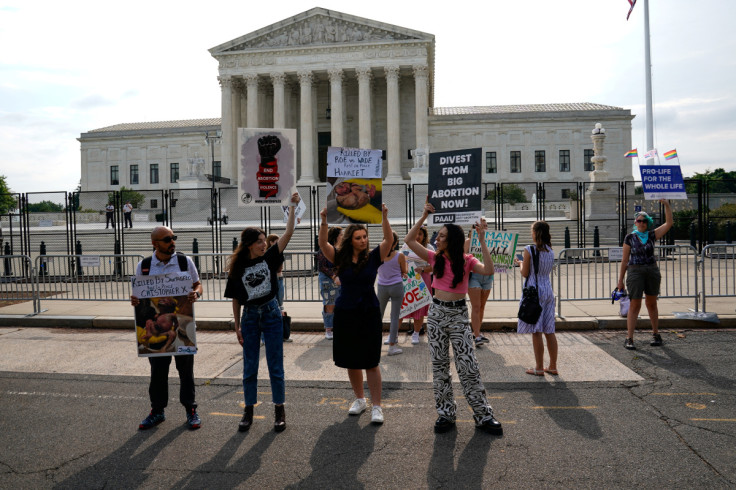
Former President Donald Trump said on Monday that abortion policy should be determined by the states individually, after months of sending mixed signals on an issue that is set to play a key role in the November elections.
In a video posted on his social media, Truth Social, Trump took credit for the overturning of Roe V. Wade with the appointment of conservative Supreme Court justices, saying that it is "now up to the states do to the right thing."
"My view is now that we have abortion where everybody wanted it from a legal standpoint, the states will determine by vote or legislation or perhaps both, and whatever they decide must be the law of the land. In this case, the law of the state," Trump added.
Trump didn't delve into specifics nor he presented a detailed policy, but he had said on Sunday that, "like Ronald Reagan before me, I, and most other Republicans, believe in EXCEPTIONS for Rape, Incest, and Life of the Mother."
The statement comes as the contentious issue threatens to become a political liability. He had campaigned in 2016 on appointing justices who would overturn the landmark ruling protecting abortion rights at a federal level. But after that effectively happened in 2022, Republicans lost every election where pro-choice advocates managed to get protections on the ballot.

Since then, the majority of Democrat-dominated states have passed laws or issued executive orders aimed at safeguarding access to abortion. Conversely, Republican-controlled states have introduced new abortion restrictions, including bans at every stage of pregnancy in 14 states.
Moreover, several studies have shown that Latinas are disproportionately impacted by restrictions of abortion due to a variety of reasons including economic and cultural ones.
It will be a tough needle for Trump to thread. In what seems to be a mirror-like situation with immigration issues, Democrats are perceived to have the upper-hand on the issue, especially when it comes to appealing more liberal crowds. And Trump could risk alienating a sector of his conservative electorate, many of whom are staunchly opposed to abortion rights.
In September of last year, Trump denounced the six-week ban as a "terrible mistake," sparking anger among some evangelicals and activists advocating for stringent abortion restrictions. He's also directly linked the issue with lousy electoral results, saying it has been "poorly handled by many Republicans, especially those that firmly insisted on No Exceptions."
In March, he said that "people are agreeing on 15 [weeks], and I'm thinking in terms of that." But he also reiterated his position about states having to decide, rather than having a federal guideline.
As months went by and he clinched the Republican presidential nomination, he'd been under mounting pressure to clarify his position, especially after Florida's Supreme Court approved a six-week abortion ban.
Democrats, on their end, have been galvanized by the situation, with advocates seeking to enshrine protection rights in November, using it to improve their electoral stance. 11 states have already gotten enough signatures to do so, the latest ones being Arizona and Florida.
"This is an issue that people are eager to see on the ballot," said Cheryl Bruce, the campaign manager for Arizona for Abortion Access, a coalition of reproductive rights organizations including the ACLU of Arizona and Planned Parenthood Advocates of Arizona. "As our volunteers are out collecting, people are coming up to them, folks are coming up to them and wanting to sign this petition."
As of 2022, a majority of Hispanics (57%) said abortion should be legal in most or all cases, a slightly smaller share than among the U.S. public overall (62%). In turn, four in ten Hispanics said abortion should be illegal in most or all cases, according to the Pew Research Center.
© 2024 Latin Times. All rights reserved. Do not reproduce without permission.







